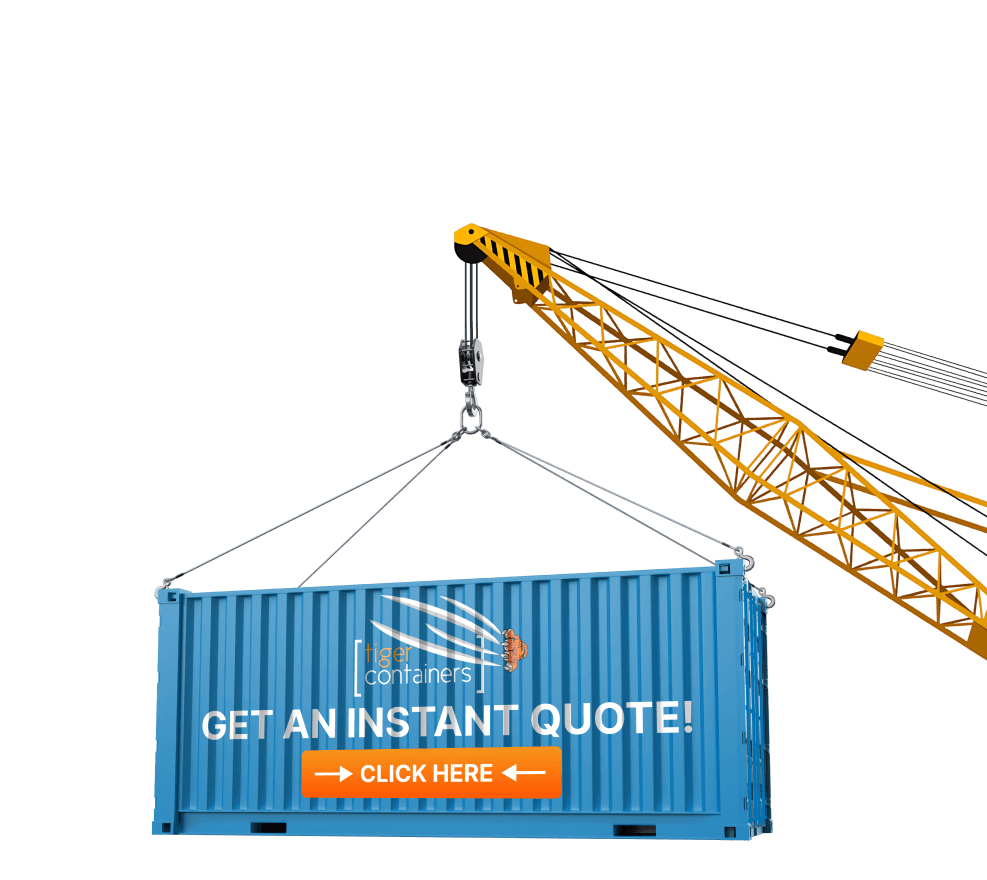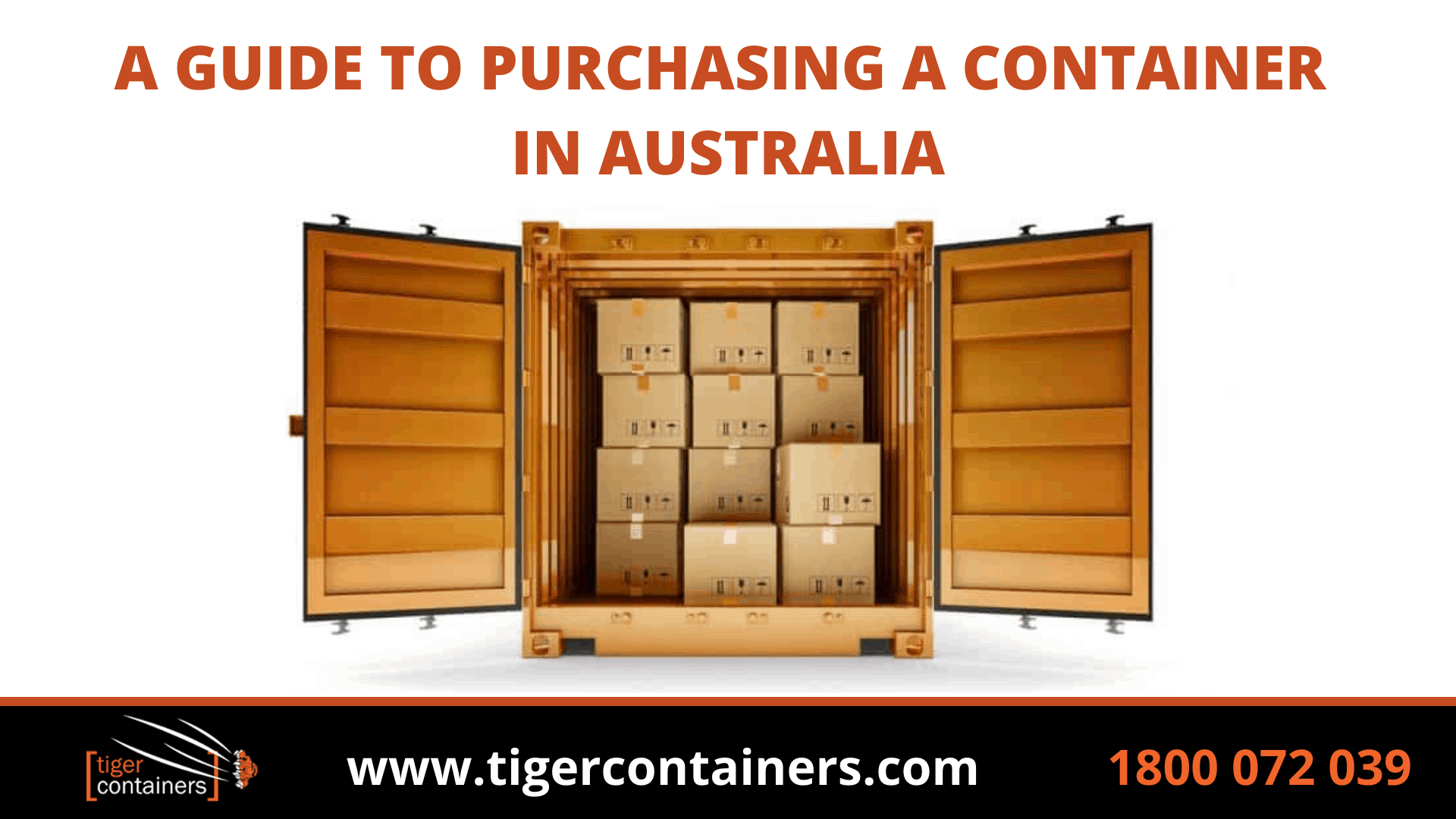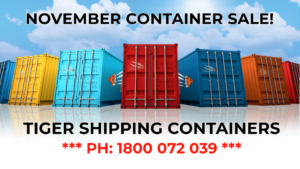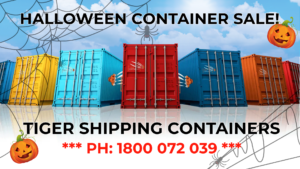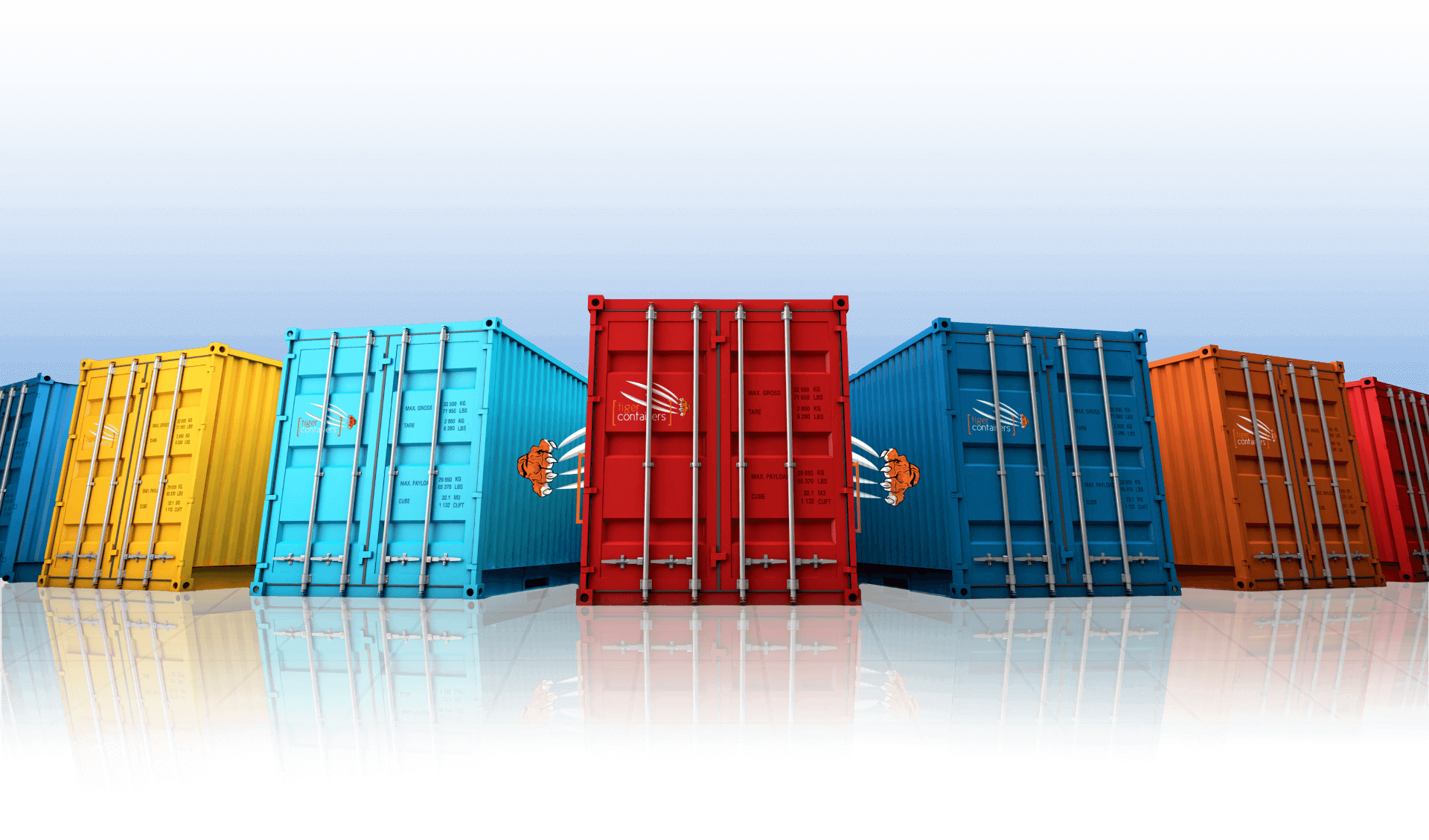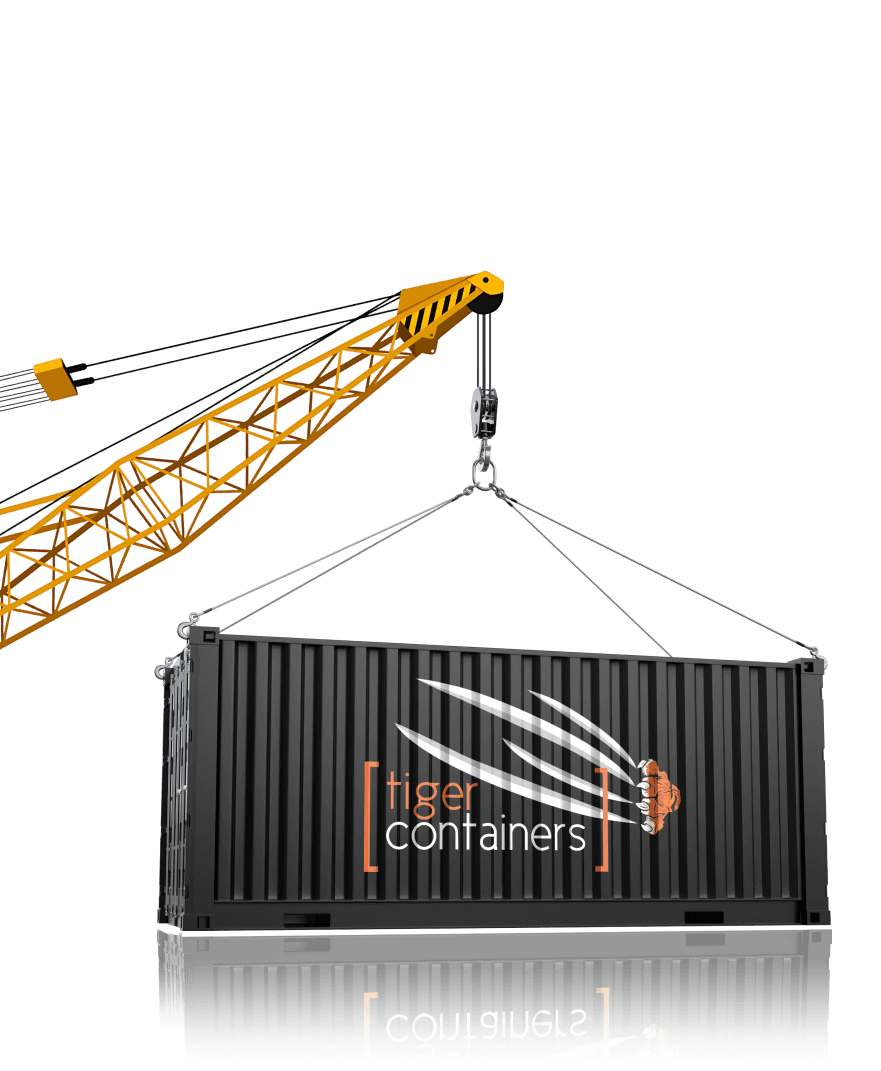If you’re looking to purchase shipping containers in Australia, the process can be quite complex and overwhelming. This comprehensive guide will make it a lot easier for you. We examine the considerations you need to make to determine the kind of cargo container you need; take you through the different container variants in terms of features and size; help you make a budget for your purchase; compare new and used containers; outline government standards for shipping containers, and; give you tips for finding the best cargo container supplier. With this guide, purchasing your sea container should be a breeze.
Both new and used shipping containers have so many uses in today’s world. As well as their original purpose of safely and securely transporting cargo, shipping containers make for fantastic storage units, on-site offices for construction sites, garden sheds and so much more.
Finding just the right shipping container to suit your needs might sound simple in theory, but there is a bit to think about and consider before starting your search.
In this post, we’ll be serving up an in-depth guide into purchasing a shipping container in Australia, so you get exactly the right container for your needs without breaking the bank.
WHAT WILL IT BE USED FOR?
How you apply the information within this guide will mostly be determined by what you plan to use your shipping container for.
The most obvious uses are for transportation or storage purposes, but depending on what you plan to transport or store, you’ll need to choose both the right type of container and a container of an appropriate size and so forth.
Here are some of the more common uses of shipping containers in list form for quick reference:
- Transporting cargo locally or overseas
- For temporary or permanent secure storage
- Refrigerated storage = frozen to chiller
- Relocatable on-site offices for construction sites
- Ablution units (temporary toilet blocks)
- On-site lunchrooms
- Storage of flammable goods
- The storing of archived documents
- Garden sheds
- Storing perishable goods (refrigerated containers)
- Moving house (within Australia or overseas)
- Home or business workshop (with electrical fit-out)
- Mancave
- Building site storage
- Extra storage for shops
- Customised/Modified shipping containers to suit your exact needs
- And more…
Container modifications are becoming super popular. People are having shipping containers repurposed for all manner of things. We’ll get more into container modifications later in the guide.
DO YOU NEED A CONTAINER PERMANENTLY?
Once you’re clear on the overall purpose for your shipping container and exactly what you will use it for, you’ll then be able to answer the question whether you need the shipping container permanently, as in many years, or just on a temporary basis.
If you don’t really need a container long-term, then hiring a good quality shipping container to suit your needs would likely be the best option to take.
If the container is going to be used for storage, or you plan to modify it in some way, then purchasing your very own shipping container really is the only choice.
THE DIFFERENT TYPES OF SHIPPING CONTAINERS
Before you can actually go out and actively hunt down a shipping container to purchase, you have to be sure what type of shipping container best suits your needs.
any people don’t realise it, but shipping containers actually come in quite a few varieties. Let’s look at what they are:
- The General Purpose Container: This is your stock standard shipping container and is also one of the most popular. It’s great for all those general transportation or secure storage needs. These containers are also perfect for modifying for other uses.
- The Open Top Container: The real advantage of this type of container is they can be loaded from above via a crane. This makes for the perfect solution when you want to ship or store things like heavy machinery. A tarp roof covers the container after loading is complete.
- Dangerous Goods Containers: Dangerous goods may include things like flammable liquids, toxic substances, explosives, gases, chemicals and so on, and these containers are specially built to safely handle this type of cargo.
- The Side Opening Container: When containers have doors that open from the side, they allow heaps more room to load wider objects, as well as being so much faster to load.
- Refrigeration Containers: If you need to store or transport.
- perishable items that require a constant temperature to keep them from spoiling, then a refrigerated container is the ultimate solution for your needs.
- Containers That Are Temperature Controlled: These are commonly called reefer containers, and with this cargo container you can actually adjust the temperature to suit the cargo you are carrying or storing.
- The Flat Rack Container: Imagine this container as a box of flat-pack furniture. These containers are totally collapsible, making them far easier to move or store.
- Containers For On-Site Offices: Purpose-built for building and construction sites, this type of container serves as a temporary, moveable on-site office that also offers secure storage at the same time.
- High Cube Shipping Containers: This is designed specifically for loading and transporting items that are extra tall. With about an extra foot of internal height, the high cube is the ultimate container for those larger than life tasks.
Check out the different types of shipping containers on offer at Tiger >
WHAT SIZE SHIPPING CONTAINER WILL YOU NEED?
Determining exactly what type or style of shipping container you require is only part of the deal. You’ll also need to be clear on what size you require.
This is something you really need to think about depending on the purpose you have in mind for your container. An example of something to consider would be this:
If you have a business where you’re transporting cargo or products from one part of Australia to another, is the business likely to grow? Will you need a larger shipping container to handle that growth, or would you simply buy another one when the time comes?
There are 3 main sizes for shipping containers:
- 10ft
- 20ft
- 40ft
The 10ft container can be a great choice for those small tasks and for people on a budget. 10ft containers are also cheaper to transport from place to place if that’s a consideration.
The 20ft shipping container is both the most versatile size and the most popular choice. It’s just the right size to suit most peoples’ requirements and is more cost-effective to purchase and/or transport than its giant of a brother, the 40ft container.
The 40 footer is huge and is really suited to those mammoth tasks. One real advantage of a container this size is it works out cheaper to transport one 40ft container than two 20ft containers.
Most people end up opting for a 20ft container for things like storage, transporting cargo, and shipping container modifications.
Check out the different sized shipping containers available at Tiger >
WORK OUT YOUR BUDGET
Some of your options for choosing the right shipping container will obviously depend on what kind of budget you have to work with.
If money is no barrier, then you could literally choose any shipping container you like for any purpose you desire, but if there are bud
get constraints, then you’ll need to take some time to really narrow down your most necessary requirements, then do some research into the prices of various types and sizes of containers.
In the next two sections, we’ll be looking at both new and used shipping containers, so if money is at a premium, a used shipping container might be the very best option.
NEW SHIPPING CONTAINERS
One of the biggest advantages of a new shipping container – especially when it comes to transporting cargo – is there is no risk of cross-contamination from previous cargo. Your shipping container is shiny and new with no dark and murky history attached to it.
A brand new container also has zero wear and tear from loading and unloading, being moved from place to place, getting banged around on a container ship in rough seas and so on.
And if you are planning on shipping goods overseas, or bringing products back into the country, then a new container will be completely seaworthy and meet all the necessary requirements.
On top of all that, it’s hard to beat something that’s brand new. Yes, it may just be a shipping container and not a brand new Ferrari that’s just come off the production line, but it’s still a pleasure to have something that is in pristine condition.
This is particularly important if you plan to modify your new shipping container into an extra room at home. You don’t need to worry about any unseen contaminants being present. So making a purchase on new containers might be the way to go.
Check out the range of brand new shipping containers on offer at Tiger >
USED SHIPPING CONTAINERS
If you plan to purchase a used shipping container, then its condition and history are going to be major considerations. What you plan to use the container for will also come into it, with regards to the quality and cleanliness of a used cargo container.
Some containers have really endured a very hard life with lots of sea travel, knocks, wear and tear and carting and storing all manner of items. In fact, some containers end up in such poor condition that their future usefulness is extremely limited.
To make life easier, used shipping containers are graded according to their condition. So let’s quickly look at those grades so you can determine what quality you require:
- A Grade Shipping Containers: These are in the best condition overall and tend to be in the age range of between 8 to 12 years. Seals are intact, surface rust has been removed and primed, the doors close securely, they have very little in the way of dents and scratches, and they are air and watertight.
- B Grade Shipping Containers: This grade of the container is a little older at 10 to 14 years. There may be some rust present, but all the seals and doors are good, so the container is still watertight and airtight. A good container for general storage, but not as clean and tidy as an A Grade Container.
- C Grade Shipping Containers: Obviously the worst condition of the three grades, but a budget-friendly model of a used shipping container. They are usually older than a B Grade Container, probably a bit dirty and rusty with a few dents, and likely the doors and seals are not water and airtight.
To round this section off, let’s list a few other terms that you might need to know about:
- Food Grade: High cleanliness standard suitable for food.
- General Quality: Few marks and a little rust. Generally a B Grade Container.
- Industrial Quality: Not in the greatest condition and a C Grade Container.
- Furniture Quality: A good quality container suitable for storing and transporting furniture.
- IICL5 Rating: Meets the international inspection and leasing standard. This is a high-quality shipping container.
- AI or As-Is: A container that could literally be in any type of condition and maybe one that’s best avoided.
- CW or Cargo Worthy: This container is in perfect condition for international shipping.
Check out the range of used shipping containers available at Tiger >
YOU NEED AVAILABLE SPACE FOR YOUR SHIPPING CONTAINER
This is something that you definitely need to consider.
Will you have the available space to place your newly purchased shipping container?
If it’s to be used for storage at the workplace or the home, will it fit? Also, will the driver delivering the container be easily able to move the container into the desired position unimpeded?
What you don’t want to do is go to the trouble and expense of seeking out and buying a container, only to discover at the last minute that it won’t fit where you wanted to put it.
The ground where it’ll reside also needs to be nice and flat, level and very solid.
INSPECT THE CONTAINERS BEFORE MAKING THE PURCHASE
This is particularly important when it comes to purchasing used shipping containers.
Depending on where the container is located, a personal inspection may not always be possible, but if you can inspect, or you know someone in the area who can inspect it for you, then definitely check it over before agreeing to the purchase.
A third option is to hire a qualified inspector to look it over for you. Yes, it’ll cost you some more dollars, but could save you money on the long-term, so it’s well worth considering.
Generally, an online search is one of the easiest ways to locate an inspector within the zone that your shipping container is located.
WHAT ABOUT SHIPPING CONTAINER MODIFICATIONS?
Something that is super popular these days is modifying shipping containers for all manner of purposes that are vastly different from the original intended use of safely shipping cargo.
Because of their solid steel construction and very easy to work with rectangular shapes, containers are getting converted into all sorts of things.
The other great thing about modifying a shipping container for something else is that they’re easily moved and transported from one location to the next, making them very versatile. They are also extremely secure when you lock them up for the night.
On-site office space for building companies is another very common use for converted shipping containers. These can be fitted out with windows, air vents and whirlybirds in the ceiling for climate control. They can be fully powered too. The biggest advantage of this type of office is it can be easily transported from one construction project to the next.
AUSTRALIAN GOVERNMENT STANDARDS FOR SHIPPING CONTAINERS
The Australian Government has some rules to consider if you are planning on purchasing a shipping container for the purposes of moving cargo in and out of the country. This is largely a quarantine issue, with the government wanting to avoid inadvertently bringing any foreign contaminants onto Australian shores.
Before purchasing your container, have a good think about exactly what goods or products you’ll be bringing into the country.
Many kinds of food items are prohibited from being bought into Australia from overseas by the Australian Quarantine and Inspection Service. For this reason, it may not be the best option if you were considering importing certain food items, especially perishable ones.
Therefore, a refrigerated or reefer container is likely not the container for you. Instead, you’d be better off sticking to a standard container of the size you require.
If you plan to only transport food within Australia, then that’s fine. Buy a refrigerated container if that’s what you need. But if you are planning on importing products from a foreign country, then maybe food items should be taken off the menu.
Based on what we’ve mentioned above, if you are thinking of getting a second-hand container for the purpose of importing non-food items from overseas, you might want to learn a bit about the history of the container and what cargo it’s previously carried, to make certain it’ll meet all quarantine standards.
For all government, border control and quarantine requirements, check out the official government website regarding the rules for shipping containers for importing and exporting.
WHAT TO LOOK FOR WHEN CHOOSING A SHIPPING CONTAINER SUPPLIER
Your purchase of shipping containers is only going to be a success if you choose the right supplier to buy from. For easy reference, let’s make a quick list of tips and questions to keep in mind when choosing a reputable supplier:
- How long has the company been in business?
- Do they have a good overall reputation?
- Are there any independent reviews of the company online?
- Are they friendly and knowledgeable when you contact them?
- What are their prices like? Do they sound fair and reasonable? Have you compared prices with other suppliers?
- Will they deliver to your area?
- How much are the delivery costs and what are the likely timeframes for delivery?
- Is there any warranty or guarantee on their shipping containers, particularly used containers?
- Does the container company have depots Australia-wide?
- Is it an Australian owned company or under foreign ownership?
- Do they sell both new and used shipping containers?
- Does the company actually stock the size and type of cargo container you’re after?
- If required, can the company perform quality container modifications for you?
SUMMARY
Let’s summarise what we’ve covered in this post with another handy list for easy reference. This way you can tick things off at a glance:
- First work out exactly what you intend to use your shipping container for, whether it’s a single task or multiple uses.
- Will you need a container on a temporary or more permanent basis?
- Get to know the different types of shipping container available and which one will suit you best.
- What size cargo container do you need? Is 10ft too small? Is the 40 footer just way too big?
- You need to know your budget first before you can start shopping for a shipping container.
- Brand new VS used shipping containers. If you go with a used one, determine the quality standard your intended purpose will require.
- Do you have somewhere suitable to actually put your shipping container?
- Be sure to inspect (or have someone inspect) the container before committing to the purchase.
- Familiarise yourself with the potential of shipping container modifications.
- Understand Australian Government laws regarding using your container for import/export.
- Choosing the very best shipping container supplier.
TIGER CONTAINERS – YOUR #1 CHOICE FOR SHIPPING CONTAINER SALES IN AUSTRALIA
If you are looking to purchase a brand new or quality used shipping container anywhere within Australia, then Tiger Containers is your first choice.
With over 35 years of industry experience, expert staff and some of the best prices in the business, you really can’t go wrong when you team up with us.
Fantastic customer service is nothing less than you’d expect from a 100% Australian owned company, and that’s what Tiger Containers is famous for.
With depots conveniently located right across the country, our team will deliver your shipping container in quick time and for very fair prices. There is even a 3-month satisfaction warranty offered on our entire range of shipping containers.
Give us a call on 1800 072 039 and have a chat with our friendly staff about your requirements today to purchase a shipping container.






